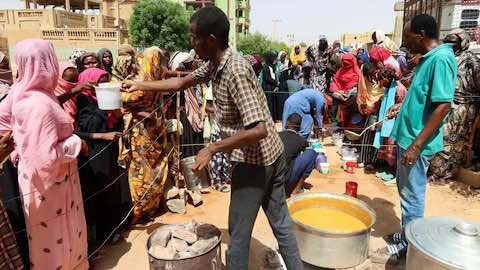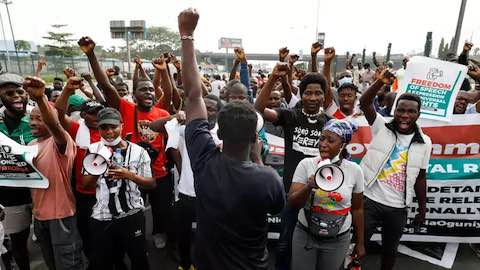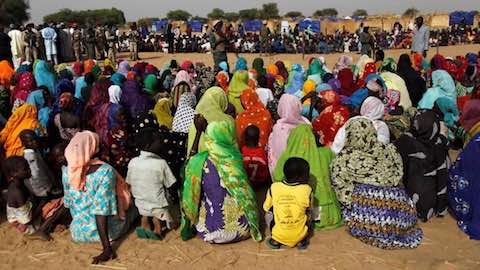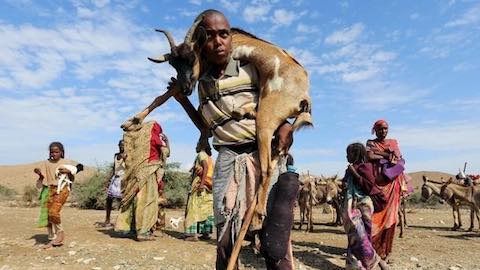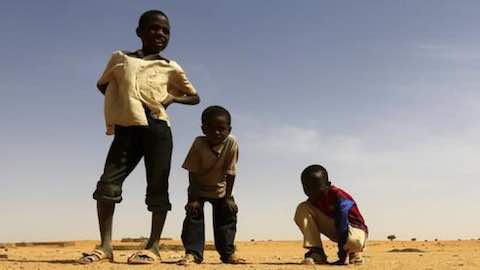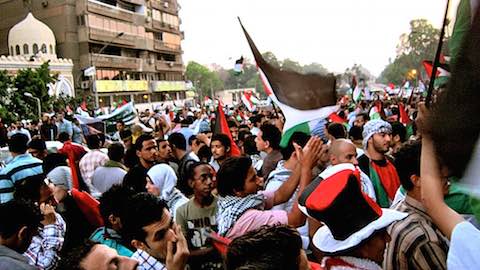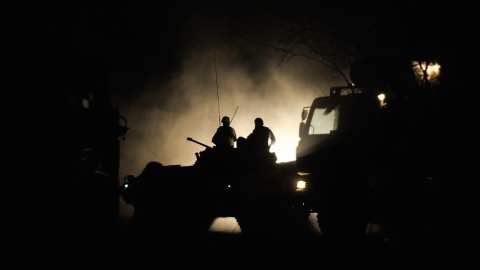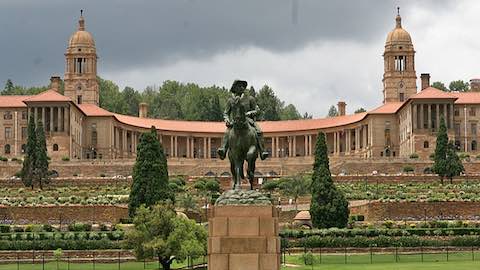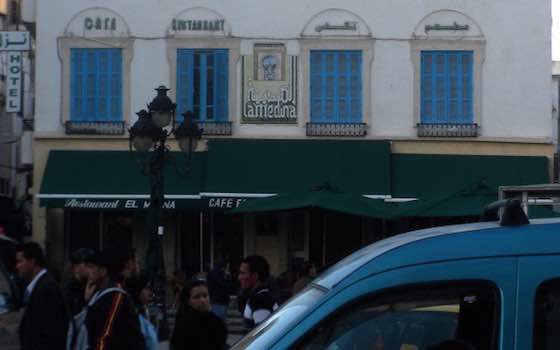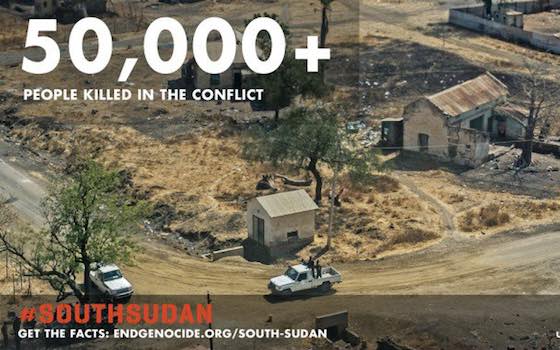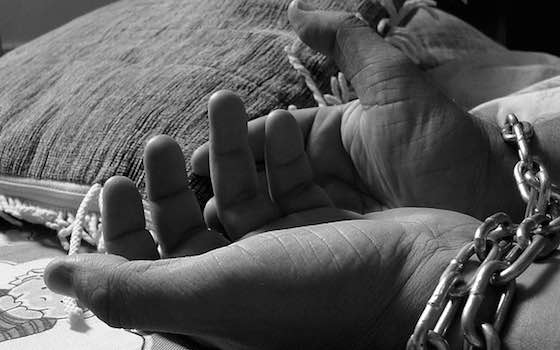- MENU
- HOME
- SEARCH
- WORLD
- MAIN
- AFRICA
- ASIA
- BALKANS
- EUROPE
- LATIN AMERICA
- MIDDLE EAST
- United Kingdom
- United States
- Argentina
- Australia
- Austria
- Benelux
- Brazil
- Canada
- China
- France
- Germany
- Greece
- Hungary
- India
- Indonesia
- Ireland
- Israel
- Italy
- Japan
- Korea
- Mexico
- New Zealand
- Pakistan
- Philippines
- Poland
- Russia
- South Africa
- Spain
- Taiwan
- Turkey
- USA
- BUSINESS
- WEALTH
- STOCKS
- TECH
- HEALTH
- LIFESTYLE
- ENTERTAINMENT
- SPORTS
- RSS
- iHaveNet.com: Africa Current Events
Countries
Argentina | Australia | Austria | Benelux | Brazil | Canada | China | France | Germany | Greece | Hungary | India | Indonesia | Ireland | Israel | Italy | Japan | Korea | Mexico | New Zealand | Pakistan | Philippines | Poland | Russia | South Africa | Spain | Taiwan | Turkey | United Kingdom | United States
Cities
Atlanta | Baltimore | Bay Area | Boston | Chicago | Cleveland | DC Area | Dallas | Denver | Detroit | Houston | Los Angeles | Miami | New York | Philadelphia | Phoenix | Pittsburgh | Portland | San Diego | Seattle | Silicon Valley | Saint Louis | Tampa | Twin Cities
- A Boon to Africa's Would-Be Despots
- White Supremacy & African Policy
- Land Reform in South Africa
-
Zuma Faces Prosecution
- Ramaphosa's Reshuffle in South Africa
- Nigeria: Dapchi Girls Still Missing
- Nigerians Are Corrupt
- South Africa's Ramaphosa
- A Bridge to Nationalism in Nigeria
- Bed Nets Fight Malaria in West Africa
- Iranians & Saudis Vie for Influence
- Kenyan Eco-Huts Attract Tourists
- Where Support For Autocracy Strongest
- On the Run from Boko Haram
- Education Offers Hope in Nigeria
- Migrants Brave Trek For U.S. Dream
- Tanzania's Ban On Refugee Groups
- Wait & See No Longer an Option
- Tunisia on Fire
- Ethiopia's Invisible Crisis
- Zimbabwe: The Post--Mugabe Era
- Pulling Kenya Back From the Brink
- Terrorism & Ivory Poaching
- African Diplomacy & Self-Awareness
- Nigeria: Buhari's Bid Faces Opposition
- The State of South Africa
- African Solution to an African Problem
- Outlier in the Orthodox Christian World
- Boko Haram and the Counterinsurgency
- Quit Dithering in Sudan
- Kenyan Women Step Up Fight For Land
- Ethiopia: Hunger Hits Emergency Levels
- No Justice in South Sudan
- Ethiopians Face Hunger Crisis
- Progress in the Fight Against Malaria
- Childhoods, War, Marriage & Hunger
- Who Can We Trust To Measure Poverty?
- China: New Steps Forward in Africa
- Libya's Downward Spiral
- Ban's Misstep in Western Sahara
- Sub-Saharan Africa's Billionaires
- Renewing U.S.- South Africa Relations
- South Africa: Finally, Zuma Resigns
- Ethiopia & the Sudanese Civil War
- Farm Mechanization in Africa
- Odinga Backs Down in Kenya
- Zimbabwe's Informal Economy
- World Ignores Displaced Africans
- What Fuels Child Marriage in Africa
- First Black Female Winemaker Goes Solo
- South Africa's Liquid Gold
- Instability, Quagmire, & Peace
- Africans Never Hung Up on Nokia Brick
- Islamic State Close to Defeat in Libya
- Libya Reaching a Breaking Point
- Tunisia: New Leaders, Old Challenges
- Can We Not End Wars Anymore?
- The Art of Dissidence & Diplomacy
- Trump's Strategy for Africa
- China's Deeper Penetration into Africa
- Countering Violent Extremism
- The Governance of Ebola
- Why The African Union Should Be Dismantled
- African Securitization & Insecurity
- Towards a Sectarian Political Order?
- Religious Politics & Illiberal Religion
- Eritrean Refugees in Sudan
- The Star Trek Fallacy
- Exploiting Minerals, Exploiting Communities
- Nigeria's Critical Juncture
- Kenya's Sorrow
- Nigerian Women in the Crosshairs
- Four Years After Gaddafi, Libya Is a Failed State
- Nigeria: Rebuilding After Boko Haram
- South Sudan Peace Talks Stall
- Congo: Two Visions for Development
- Africa's Place on World Stage
- Botswana: Africa's Success Story
- The Children's Crusade
- Deafening Silence from Ethiopia
- Roadmap for Peace in South Sudan
- ISIL's Expansion in Algeria
- Inside the U.S. Drone War
- The Afars: Forgotten Refugees
- Time for the Sudans to Re-unite?
- Save South Sudan, Dump the Warlords
- Is the Refugee Crisis Really a Crisis?
- Reversing Nigeria's Oil Curse
- Congo: Is Democratic Change Possible?
- Nigeria's Youth Factor
- Garissa Attack Not Just a Tragedy
- Tunisia: Targeting Cultural Heritage
- Tragedy in Tunisia
- Putting Boko Haram in Context
- Poverty: The Petri Dish That Grows Ebola
- Tunisia's Upcoming Elections
- Burkina Faso's Resource Curse
- The Role of Ex-Rebel Parties
- The Arab Uprisings Five Years After
- The Global Militarisation Index
- South Sudan's War on Women
- Ethiopia's Precedent for Crackdown
- Can We Take World Peace Seriously?
- Gross National Happiness Catches On
- Africa: The Soldier & the Street
- What Now for Burundi?
- Precarious Counterterrorism Partner
- Learning the Lessons of Ebola
- Ebola's Racial Disparity
- Ebola & Economic Inequality
- Women Bearing Brunt of Ebola
- Authoritarian Symps
- Healing or Harming?
-
Coverage, analysis, photo and video coverage of the 2014 FIFA World Cup from Brazil
-
The United Nations' human rights chief says South Sudan's president, Salva Kiir, and rebel leader Riek Machar do not appear concerned about a possible famine in the country
-
A prominent member of the African Union has expressed confidence that the group will resolve the crisis in South Sudan following meetings with President Salva Kiir and former vice president Riek Machar
South Africans head to the polls on May 7th, 20 years after Nelson Mandela and the African National Congress won the country's first democratic elections. The ANC is expected to win again, but issues of poverty and corruption persist
Nearly two thirds of humanity remains offline, that is more than 4 billion people. The internet is a powerful enabler of social and economic progress and everyone deserves to be connected. It is the responsibility of the technology industry to make this happen
The government of Cameroon has vehemently denied allegations that it has allowed its territory to be used as a training ground by terrorist groups and rebels destabilizing Nigeria and the Central African Republic
East African countries said they are ready to send a protection and stabilization force to South Sudan, where fighting has continued despite a ceasefire. Peace negotiations taking place in Addis Ababa have made little headway
Some African economies would need to grow at the impossible rate of seven percent to meet the Millennium Development Goal for poverty eradication
A profound mismatch exists between Guinea's two main economic sectors: mining and agriculture. Mining, creates minimal employment for Guineans. By contrast, agriculture, the sector that can create employment on a massive scale has been ignored
Africa's mining sector has a transparency problem, and the Republic of Guinea, under President Alpha Conde's leadership, is now seen as a test case for opening up the finances of the industry to public scrutiny
West Africa supports some of the world's most productive marine and freshwater ecosystems. However, mismanagement, weak regulatory frameworks, a lack of enforcement, too many vessels and greed have had negative consequences for fisheries
2014 will go down as a milestone year in Nigeria's history, the moment when its economy achieves global scale. Given Nigeria's vast and rapidly growing population, it cannot fail to demand an ever greater share of the global investor's attention
Nigeria is heading for growth and development, as well as being Africa's biggest democracy -- a federation of 36 states and the Federal Capital Territory. But there is another tale that can be told
By the looks of it, U.S. President Barack Obama may be close to joining the French in taking on the Chinese -- in Africa. Obama made it clear to both British and French leadership that he was going to leave it to them to protect unstable African countries
A decade after the court started work, the Security Council has found the common purpose to refer only two cases to it, both of them African: crimes committed in Libya during Colonel Gaddafi's final days, and by the regime of Omar al-Bashir, the President of Sudan
Hardly a day goes by without America-bashers accusing the U.S. of 'imperialism' or 'interventionism.' Meanwhile, China is largely exempt from that sort of criticism from the same crowd. If only they'd listen to a few of the other voices
Africa is the one remaining region where big families are the norm. Fertility is still high with five births per woman and rapid population growth is inevitable. Africa's population will more than double from 900 million today to 1.96 billion by 2050
A slow return to normality is becoming possible in Mali's northern regions which endured months of harsh jihadist rule until French-led forces intervened. However, there is concern that this should not simply mean a return to the pre-crisis state of affairs
The key to China's acceptance in Africa has been its strictly businesslike approach: economic investment without political engagement. Yet there is some evidence that Chinese companies are beginning to wear out their welcome on the continent
China's activities in Africa have long been a target of criticism. Its support of controversial leaders and massive hunger for resources have led some to question its intentions. Changing that perception has been a key point for Chinese President Xi Jinping
The forgotten war has just turned 10 years old, but of course almost no one took notice. Since early 2003, at least 300,000 people have been killed. More than 2 million others have been forced from their homes. Even now, the problems are worsening
Transparency International lists almost three dozen states as more corrupt. But are any of those nations as wealthy as Nigeria -- taking in $81 billion annually, just from the sale of oil? No. So Nigeria steals and squanders more money than any other nation
Liberian Nobel Peace Laureate Leymah Gbowee has warned that recent developments are undermining Liberia's young democracy. Her warning comes amid a dispute between Grace Kpaan and members of the House of Representatives
Human Rights Watch is urging Kenya to crack down on rights abuses and enact promised political reforms ahead of its national elections as heightened tensions could lead to an outbreak of violence and threaten the voting
The recent jihadist attack in Algeria, and the subsequent hostage situation prompted some knee-jerk discussions. From these discussions came the belief that the incident was unprecedented. A closer examination shows quite the opposite
South Africa is hosting this year's Africa Cup of Nations soccer tournament, but you would not know it to look around Johannesburg. It is a far cry from the mania that washed over South Africa when it hosted the 2010 FIFA World Cup
The relief felt several months ago at the apparent outlawing of child marriages now appears to have been premature, with Swaziland's traditional leadership recently declaring that such unions are acceptable
It would indeed be nice if there were no wars anywhere on Earth. It would also be great to own five BMWs and three private islands. Both are equally unlikely scenarios, yet only the first is accepted as plausible by the perpetually deluded
Militant Islamists fleeing northern Mali under pressure from French forces could undermine security in neighbouring countries from where some of the fighters are believed to hail. They could also attract the support of sympathetic militias in the region
Despite his repeated brushes with the law, a poor performance in his first term and a general sense that at the age of 70 he is unfit for leadership, Jacob Zuma won a second term as president of the ANC with 75 per cent of the vote
Over the past two months, an estimated 1,000 families have been forced from their homes in Baringo, a district in Kenya's northern Rift Valley, because of recurrent conflict between the local Tugen and Pokot communities
Socialist French President Francois Hollande is in the pilot's seat in the world's latest military incursion. We're not used to seeing the French lead the way into battle, but it's becoming increasingly frequent
When President Zine Ben Ali was deposed, a new era of modern Tunisian history -- one filled with hope and frustration -- unfolded
The thick stench of human waste pervades the block of the eight unfinished flats in the Zimbabwean capital, Harare. The complex is dotted with human faeces - some of it parcelled in plastic bags, some not
Distrust of foreigners has increased in South Africa in the four years since a wave of xenophobic violence swept the country
Children as young as 14 are joining military training camps in southern Mali preparing to fight Islamist groups in the north. At the same time, Islamist groups are recruiting children as young as 11
Drug money, corruption and jihadists have pushed one of Africa's most admired democracies into crisis
Nigeria is destined to become Africa's largest economy. The kind of economic growth it will experience and the extent to which this will transform the lives of its 160 million people is yet to be determined
Police in South Africa's northern Limpopo Province have shut down hundreds of shops run by refugees and asylum seekers during an operation to enforce trading laws
Although Guor Marial is proud to be South Sudanese, when he lines up for the Olympic marathon, he will be considered an independent athlete
More than 100 people in the Zimbabwean capital Harare and Chitungwiza, a dormitory town 35km southeast of the city, have contracted typhoid
As M23 rebel fighters marched into Goma, in eastern Democratic Republic of Congo (DRC), a small group of people in the UK were watching anxiously to see what would happen next
Whether Africa can scale-up wheat production to meet growing demand will depend on governments' support of local producers. A key test is whether they are willing to take on wheat import subsidies
Two South African women may have helped unlock the key to a vaccine to rid the world of one its deadliest epidemics, according to new research released by South African HIV experts
The Plaatjies family shack is warm in the winter and cool in the summer, and it has an independent electricity supply as well as an alarm system
Above-average seasonal rains in parts of the East and Horn of Africa have affected tens of thousands of people, displacing families and restricting access to many in need
South Africa's past policies, like Nigeria's, were paradoxically suffused with a missionary zeal. While Nigeria advocated economic development, apartheid's leaders talked patronisingly about their country having 'special responsibilities'
When food is short in South Sudan, education is the first casualty of hunger
Swarms of locusts encouraged by early rains are breeding in the north of Mali and Niger, bringing a second generation of insects that could increase 250 fold by the end of this summer
South Sudan's first birthday is marked by economic hardship and renewed conflict with Sudan
By most accounts, Adams Oshiomhole is the most popular governor Nigeria's Edo state has ever had. He is up for re-election and the outcome could go one of three ways
Measures implemented in South Africa over the past four years have failed to defuse continuing resentment of foreigners or to ensure justice for victims of xenophobic violence
The government insists that the killings cited by human rights activists and the UN, far from being targeted assassinations of opposition supporters, were the result of banditry, land disputes or score-settling between civilians
It was early when police arrived at the home of Emmeldah Mutale, a widowed mother of five, in the capital, Lusaka, to demolish her two-bedroom house
Officials in the self-declared republic of Somaliland, northwestern Somalia, are appealing for food aid and potable water for thousands of families who have lost their livelihoods in the current drought
A devastating drought and crop failure is affecting about 10 million people and threatening to put more than one million children into a state of severe malnourishment
In Algeria, memories of past fighting deter unrest despite economic malaise, political repression
Mothers, babies and newly diagnosed HIV patients are receiving more of the services they need but progress comes at a cost, according to a new report that predicts a funding shortfall for HIV treatment in South Africa
NATO's operation in Libya has rightly been praised for saving lives, ending a tyrannical regime, and has rightly been hailed as a model intervention
The Arabs' exceptionalism was becoming not just a human disaster but a moral one. Then, a frustrated Tunisian fruit vendor summoned his fellows to a new history. The third Arab awakening came in the nick of time, and it may still usher in freedom
The arrival of democracy in South Africa brought with it unprecedented freedom for its media. No longer shackled by the myriad of laws it had to endure under apartheid, the right to freedom of expression had now been enshrined in its new negotiated Constitution
Red Cross Food convoys have completed their distribution of emergency rations to nearly one million Somalis aimed to tide them over until harvest season
While security and defense contracting in Africa is nothing new, the awarding of another multi-million dollar contract by the US State Department to a controversial private security operation is perhaps indicative of just how thinly stretched the US military is becoming
Simply put, the AIDS response is rightly viewed as one of the greatest success stories in modern global public health
Heavy rains in Kenya have washed away bridges and rendered many roads impassable, complicating efforts to reach thousands of people made homeless by the flooding
Brandishing a plea for developed countries to make good their promises to reduce carbon emissions, 300 farmers, youths and activists took the scenic route to the COP17 conference in Durban, travelling more than 7,000km from Burundi in 17 days, through 10 eastern and southern African countries, aboard a convoy of buses draped in various national flags
Livestock herders in Lesotho are suspicious of the government's motives for 'modernizing' the land tenure system, fearing it will bring about a radical change in their way of life and deprive them of their birthright to land
After more than two years of political crisis, Madagascar finally appears to be moving towards the restoration of democracy. A new prime minister has been appointed, and elections are planned for 2012. Donors who suspended aid to the impoverished island nation are watching these developments closely
Pre-election politics and planned development schemes have fuelled an upsurge in inter-communal killings and forced displacement in Kenya's northern Isiolo area, which if left unaddressed, is likely to escalate
Two years after the Nigerian government granted amnesty to militants fighting mainly for development and job opportunities in the oil-rich Niger River Delta, violence has diminished, and oil revenues have increased. But analysts argue that the amnesty programme is flawed and will not lead to long-term peace
Across the road from Maiduguri railway station, in the corner of a now abandoned property, a leefy neem tree provides a canopy for the remains of a mosque flattened by the Nigerian army
Boko Haram, which means 'Western education is sinful' in Hausa, was established in 2002 in Maiduguri, the capital of Nigeria's Borno state. It has since spread to several other northern and central Nigerian states
One dictator less is good, the mission has been accomplished and whatever else is happening in Libya is just mundane
Humanitarians are struggling to meet the basic needs of over 200,000 people recently displaced by clashes in North Kivu Province, eastern Democratic Republic of Congo
- Air Strikes Hit Al-Shabaab Base in Southern Somalia
- Government Clash With al-Shabaab Claims at Least Seven
- One Million Need Food Assistance in Zimbabwe
- Uganda: The LRA's Legacy in the North
- Ethiopia: Cautionary Migration Tales are No Deterrent
- Tunisia's New Premier Faces Islamic Test
- Kenya: Insecurity Undermines Aid Access in Dadaab
- Global Peace Index Bad for Middle East and North Africa
- Kenya's 'Economic' Conflict with Al-Shabaab
- Moving Towards Weak and Failed States
- Morocco's Short-Sighted Politics
- Elections and Instability in Algeria
- Ghana Oil: Only for the 1 Percent?
- Al Shabaab's Threat to Kenya
- Aid Efforts Under Strain as Refugees Numbers Mount
- Negotiating Humanitarian Access in Mali
- The Sudans: All We Are Tweeting is Give Peace a Chance
- Kenya: Power and Recognition Among the Maasai
- Gas Flares a Burning Issue in Niger Delta
- Mogadishu Terror Continues Despite Al-Shabaab 'Withdrawal'
- Drought Warning Prompts Call for Early Action
- Liberia: Land Grab or Development Opportunity?
- Towards a Pro-Poor Maize Policy in Kenya
- America vs China in Africa
- Thousands Flee Congo Election Tension
- Avoiding Ethnically-Driven Elections in Guinea
- Somalia: Mohamud Mohamed Ali, 'Two years later, I am back to square one'
- Somalia: Yemen Returnee Numbers Soar
- Kenya's Invasion of Somalia Raises Controversy
- Africa: Threats of the Sea
- Ivory-Coast: En Route to Recovery?
- Nigeria: Tangible Tensions
- Migrants Targeted in Somaliland
- Zimbabwe: Thousands of Girls Forced Out of Education
- Europe's Woes Make Their Way Across the Mediterranean
- Guide to Egypt's First Post-Revolution Elections
- Ghana: Dismantling Elmina Castle
- Target: Africa
- Democracy in Revolution: The Mediterranean Moment
-
Families accuse the Nigerian Government of not doing enough to rescue the girls as rumors of their fate become more and more disturbing
-
South African President Jacob Zuma and his party the African National Congress are expected to win upcoming elections, despite allegations of corruption and misconduct
-
After the 2012 coup in Guinea-Bissau, Jose Manuel Ramos-Horta -- Nobel peace laureate and former President of East Timor -- was appointed to help restore democracy. He tells about how the corrupt politicians and generals brought the country to its knees
-
No one knows the exact amount of remittances Africans send home, since not all of this goes through official channels. However, remittances sent home by Africans working abroad are a better basis for future development than international aid
-
Many young Nigerians have experienced life in the West and developed a sense of how things could be in a well-run Nigeria. And they're not afraid to speak out on the need for political change
-
At a time of bitterly divided politics, the passing of Nelson Mandela offers us a valuable reminder of how great leaders can bridge great divides and get reconciliation right
-
Many violent revolutionaries became peacemakers once their oppressors were removed from power. Whether Mandela experienced a conversion, or simply adapted a more pragmatic path to his goals, I cannot say. Let us charitably assume the best about a man who ended an evil
-
Steve Bantu Biko was only 31 when South African Security policemen killed him on September 12, 1977. Yet Biko's significance stretches far beyond his short life and the brutality of his death. He was, and is, hailed for his role in developing Black Consciousness
-
More African Children's Well-Being Improved, but Still Inadequate
Africa has become a better place for children in recent years, but more investments are needed in health and education to further improve the lives of African children, according to a new study of the African Child Policy Forum
-
More The M23 Surrenders: A Pyrrhic Victory in Eastern Congo
When the M23 rebel group surrendered after its defeat by the Congolese Army, elated international observers declared it the beginning of the end of the longest, deadliest conflict since the Second World War. But is it?
-
More Democratic Republic of the Congo Test Case for 'New World Order'
The United Nations finally got tough. It unleashed MONUSCO, its in-country peacekeeping force, to join forces with the Congolese Armed Forces in a full-scale military operation to route the rampaging rebel group, the M23
-
More Al-Shabaab's Savage Coming of Age (and How to Respond)
It began like any other Saturday morning at the upscale Westgate Mall in Nairobi, Kenya. Then havoc broke out. The massacre accordingly represents al-Shabaab's savage coming of age as an international terrorist organization
-
After mounting a military operation to help Mali crush Islamist extremists, some observers say the Mali intervention symbolizes a changed French relationship with Africa -- and the presidency of French leader Francois Hollande
-
The French-led military offensive in Mali has pushed back radical Islamists freeing the local population from totalitarian rule. However, despite these initial victories, it raises concerns as to what unforeseen consequences may lay down the road
-
Recently, two completely different events demonstrated how sensitized Africans have become about Western attitudes and; American and European condescension towards toward them
-
One longs for the heyday of ancient Timbuktu. Unfortunately, the broad region of West Africa that includes present-day Mali has had its share of geopolitical turmoil since at least the eighth century
-
Residents of Gao and Timbuktu in northern Mali expressed relief after French and Malian forces re-took the towns from Islamist militia, but said they faced an enormous task in rebuilding the cities
-
The Somali government plans to relocate thousands of internally displaced persons currently in Mogadishu to camps on the outskirts of the city, but there are concerns over inadequate government capacity as well as security and access to services
-
The main foreign preoccupation seems to be the potential threat to America of al-Qaida of the Islamic Maghreb and the other bands of Islamic jihadists, kidnappers, smugglers and bandits active in the Sahara
-
Military interventions by powerful nations into lesser ones, such as now continues in Mali (and Afghanistan), and is being urged by many into the Syrian civil war, are inherently reckless since even the most powerful states can have the whole project blow up on them
-
Two West African cardinals, Peter Turkson of Ghana, and Francis Arinze of Nigeria, are considered to be among the top candidates to replace Benedict as head of the Roman Catholic Church
-
The Algerian hostage situation and ensuing crisis -- one of the largest hostage seizures ever ended with the death of 80 people -- was both a human and political fiasco and its regional implications are still evolving
-
More than 10 years after the chaotic and often violent farm invasions that accompanied Zimbabwe's fast-track land reform programme, a new book argues that the redistribution programme has dramatically improved the lives of thousands
-
A fundamental question is how China's model of economic activity in Africa differs from the approach of Western countries, and whether Africa is better off for it
-
A coherent, well-orchestrated plan for disarmament, demobilization, and reintegration of rebel forces and extremists must accompany any intervention in Mali
-
Malawi still faces major challenges, but this is a case where dire predictions of an African country collapsing into family-based despotism were wide of the mark
-
In their planning to support the Libyan revolution, Western powers appear to have neglected the impact on its sub-Saharan neighbours. This gap in thinking may reflect the institutional gulf in foreign ministries between sections focused on the Middle East and North Africa
-
More youths from the self-declared republic of Somaliland are illegally migrating from the region, mainly due to a lack of jobs, traveling through Ethiopia, Sudan and Libya on their way to Europe
-
A series of new papers is highlighting unresolved issues and raising questions about the quality and quantity of aid being made available to help poor countries adapt to a warming earth
-
Ship hijackings and piracy off the coast of Somalia has dropped off dramatically in 2012. However, diminished activity does not necessarily mean a decrease in the cost of sailing around the Horn of Africa
-
Farm labourers are the latest group to join a wave of strikes across South Africa in recent months as food price increases outstrip the official inflation rate
-
Flash floods have washed away the rice harvest of some 2,000 farmers in western Kenya, flooding some of their homes and sending latrine effluent into water courses
-
Hassan Sheikh Mohamud's election as president of Somalia has been heralded as the start of a new era for the troubled Horn of Africa state, which has been mired in conflict for over two decades
-
In response to rising HIV prevalence, Uganda's government has announced a strategy to reduce new HIV infections by up to 30 percent by 2015, but activists have cast doubt
-
The standoff between Mali's government and armed Islamists is unlikely to resolve peacefully, and the prospects for a new war in the Sahel appear increasingly probable
-
In times of severe drought, food funding often takes priority over other needs like education, yet children who miss out on learning remain vulnerable to future disasters
-
More than 1,000 people are estimated to have died in bombings and shootings by Islamist extremists in northern Nigeria since 2009, but an additional casualty has been the jobs and opportunities lost in an already deprived region
-
As South Africa moves towards universal healthcare, health policy experts warn that the country has grossly underestimated the number of health workers it will need to ensure access to health services for everyone
-
A spate of 'terror' attacks, aid worker kidnappings and heightened ethnic conflict in northern Kenya have fuelled demand for small arms by civilians and criminals
-
After three years of seemingly fruitless talks about a new constitution that would loosen Robert Mugabe's 32-year grip on power, Zimbabwe is reaching a decision point
-
Conflict over oil fields is ongoing between Sudan and South Sudan
-
More than half of all Ethiopians have access to an improved source of drinking water, but the country still has much work to do if it hopes to achieve its goal of providing access to safe water and sanitation for its 83 million people by 2015
-
Humanitarian aid to Somalia should be scaled up particularly in south-central agro-pastoral areas following poor March-May 'Gu' rains
-
In the outskirts of Moussoro mothers line up with their babies in the sweltering heat waiting to be screened for malnutrition
-
South Africa is the undoubted social, economic and geopolitical powerhouse of the southern cone of Africa. Yet its unique regional perspective on power is currently more concerned with global than regional dynamics
-
South Africa needs to balance welcoming foreign investment -- especially from China -- with acting to safeguard its status as a hegemon in Southern Africa
-
We have seen Tuareg militants, previously employed by the regime of former Libyan leader Moammar Gadhafi, leave Libya with sizable stockpiles of weapons and returning to northern Mali, where they have successfully wrested control of the region away from the Malian government
-
Egypt's presidential election ought to be celebrated as a great success for the forces of democracy in Egypt and the Arab world
-
In recent years, a new threat has emerged: the mafia state. Across the globe, criminals have penetrated governments to an unprecedented degree
-
Although overpopulation plagues much of the developing world, many developed societies are now suffering from the opposite problem: birthrates so low that each generation is smaller than the previous one
-
Somalia's recent experiment with federalism seems to have further fragmented the country and incited the creation of competing clan-based entities
-
The Tunisian Islamist party Ennahda's moderate Islam wins few friends, lots of distrust, and comparisons with Ben-Ali
-
Tunisia is straining, pulled on one side by violence in the streets and campuses and on the other by political paralysis in parliament
-
Strict Sharia, or Islamic religious laws, imposed by the Islamist rebels controlling vast swathes of northern Mali are driving thousands of students out of schools
-
The case of the Sierra Leone "15" highlights the country's growing resistance to multinational land-grabs
-
Vivid memories of 'Black Hawk Down' mean attacks will be confined to air strikes
-
Part of Africa's challenge is extending good governance and development far beyond the capitals
-
It might seem a daunting challenge to determine which of the world's repressive nations. But you may be surprised by the unanimity among organizations that study such things. The consensus choice is Eritrea
-
Noncommunicable diseases in developing countries are occurring more rapidly, arising in younger people, and leading to far worse health outcomes than ever seen in developed countries
-
Heavy fighting in eastern Democratic Republic of Congo's (DRC) North Kivu Province has pushed some 3,000 Congolese refugees into northern Rwanda
-
Zimbabwe's ruling party is attempting to ensure its continued dominance ahead of a presidential election
-
Al-Qaeda in the Islamic Maghreb (AQIM) appears to have a stranglehold over parts of northern Mali and beyond, despite its modest numbers and murky agenda
-
The Malian government would be best advised to sit down and negotiate with the MNLA, which is fighting to carve out an independent state in the north
-
Mali is facing its worst humanitarian crisis for 20 years, brought on by a combination of food insecurity, some 93,500 internally displaced persons in northern Mali, and 113,000 refugees
-
The government has teamed up with South Africa's main employees' and employers' associations to launch a new HIV/AIDS workplace policy that is to be implemented across the nation
-
For all the veneer of the 21st century, the world still looks a lot like it did during the last hundred years and well before that
-
Trying to determine who is the world's most destructive national leader might seem like a daunting assignment. There seem to be so many to choose from. But look at the facts, and you'll find only one perfectly obvious choice: Robert Mugabe, president of Zimbabwe
-
Twenty-nine NGOs providing services ranging from alleviating food insecurity to assisting the disabled in Zimbabwe's Masvingo Province have been banned, sparking fears that this could be the start of new wave of restrictions
-
South Africa has chosen World AIDS Day 2011 to launch its new national strategic plan that, for the first time, will guide not only the national fight against HIV but also tuberculosis (TB) until 2016. The document contains several major policy changes, including the immediate provision of lifelong antiretroviral (ARV) drugs to all HIV-positive mothers and TB patients, as well as a focus on positive prevention
-
As international HIV funding declines, nations are bracing for a future with less money and tougher choices. In countries like donor-dependent Malawi, a new UNAIDS tool is already beginning to shape how to rationalize their HIV responses to cope with the altered circumstances
-
Kenya's estimated funding gap in providing HIV services until 2013 is estimated at $1.67 billion. In 2010, the national budget set aside an unprecedented $10.5 million - for the purchase of antiretroviral (ARV) drugs, but much more money is required
-
'Starting from scratch' is the term used widely to describe the challenges faced by the world's newest state, the Republic of South Sudan. More recently, it has been used to describe the difficulties to be faced in Libya. While the two states are in entirely different situations both face similar difficulties in what is effectively nation building in a post-war context
-
Independent media continues to function in the Somali capital, Mogadishu, despite the killing of two journalists since the beginning of the year and the exile of 50 others after receiving death threats. Ten radio stations and a TV station operate in the city
- Kenyan Government Must Account For Mount Elgon Disappearances
- Xenophobia and Fear Follow Nairobi Blasts
- Kenya: Sexual Violence Still Major Urban Threat
- Zimbabwe: Small-Scale Farmers Choose Tobacco Over Maize
- Rumpus Over Genetically Modified Food Aid in Africa
- Senegal: Demining Machine Clears Path For Better Future
- Somalia: African Union Forces Attack Al Shabaab's Strongholds
- Worst Forms of Child Labor Still Widespread in Africa
- South Africa: Deportations of Zimbabwean Migrants Set to Resume
- Uganda: New facility to Concentrate on Cancer
- Africa: Why Involving Men is Crucial
- Dire Pollution in Ogoniland But Little Action So Far
- Great Game in the Horn of Africa
- The Last Colony in Africa
- Beyond Good Versus Evil: Fighting Somalia's Perpetual War
- Heavy Casualties as Somali Forces Attack Rebel Stronghold
- Somali Forces Seize District in Lower Jubba from Insurgents
- Hard Times Lead Young Somalis to Delay Marriage
- Zimbabwe: Poverty Alleviation Program Targets Kids
- Is Africa New Breeding Place for Terrorism?
- Stabilizing Congo
- The Balkanization of Somalia
- Refugees Still Vulnerable in Southern Kordofan
- Al Shabaab Attacks Kill 16 at Key Somali Border Town
- Insurgents Take Over Key Somali Border Town
- Government Soldier Kills 10 at Mogadishu Refugee Camp
- Kenya's Risky Intervention into Somalia
- Children Tempted With a Phone to Carry a Gun
- African Drought Response: Lessons Still to Learn
- Bono's African Philanthropy Could Use a Remix
- The Dadaab Camps: The Daemon in the Detail
- Dadaab Camps: A Day in the Life of a Refugee
- Somali Media Press on with Work Despite Deadly Challenges
- The New Scramble for Africa
- Kenya: NCDs and HIV Fight for Limited Resources
- Kenya: Thousands of Children to be Immunized Amid Polio Outbreak
- Horn of Africa Migrants Beaten, Deported, Imprisoned
- Rights Groups Report on Somalia Downplayed
- Congo Refugees Unwilling to Return Home
World News
- Africa
- Asia Pacific
- Balkans
- Caucasas
- Central Asia
- Eastern Europe
- Europe
- Indian Subcontinent
- Latin America
- Middle East
- North Africa
- Scandinavia
- Southeast Asia
- United Kingdom
- United States
- Argentina
- Australia
- Austria
- Benelux
- Brazil
- Canada
- China
- France
- Germany
- Greece
- Hungary
- India
- Indonesia
- Ireland
- Israel
- Italy
- Japan
- Korea
- Mexico
- New Zealand
- Pakistan
- Philippines
- Poland
- Russia
- South Africa
- Spain
- Taiwan
- Turkey
